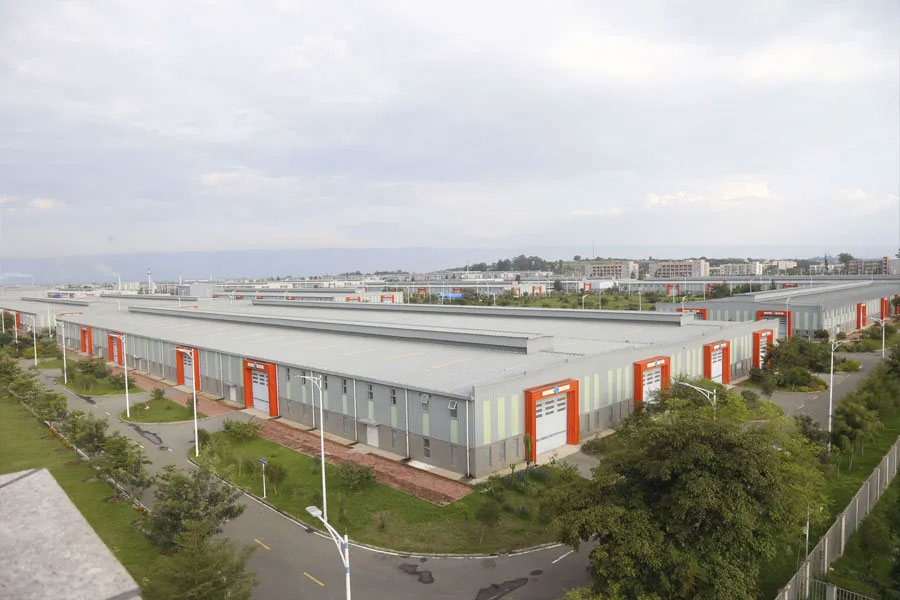
Radar | Sep 14,2025
Nov 16 , 2019
By Tibebu Bekele
Studying the history of revolutions all over the world is an exercise in the study of failures. Almost all revolutions, perhaps with the exception of the American and the French revolutions, started with romantic visions of equality and prosperity for all and ended up replacing one form of oppression by another. Unfortunately, they also leave a carnage of death and destruction in their wake.
However, in spite of this unimpressive record, revolutions remain popular attractions, especially among young people around the world. From the Colour Revolutions of the early 2000s to the Arab Spring to the modern reincarnation of the Bolivarian revolutions of Latin America, street protests, often started by demanding some economic redress, get taken over by revolutionary fever.
They enjoy a limited measure of success for a little while at most before the splitting of the movements that started them. There will be fallouts between leaders until one or the other takes absolute control, often by brutally getting rid of the others. Revolution reversed, oppressor replaced, the masses betrayed again. This seems to be the same loop playing on repeat.
Why is there no sustained focus on the underlying economic disparities that started the whole thing in the first place?
In fact, closer inspection will show that the cause of oppression and inequality is almost always an economic question more than anything else. The root cause of racism is the unparalleled economic advantage that could be drawn from slavery. Most dispossession and displacement that happened in feudal societies was a result of the scramble for land – the means of production. It has little to do with what language people spoke or what their ethnic group was. Those were accidents of history. Displacements happen within even the same linguistic or ethnic group in the scramble for resources.
Therefore, the million dollar question is why there is not more passion and intensity about economic empowerment for historically disadvantaged communities.
One possible reason could be that economic emancipation is hard work. It takes time. It takes planning and cooperation. Most frustratingly to activists and political entrepreneurs who want to ride the wave of anger to power and wealth, it does not happen overnight. It is much easier to ignite the passions of impoverished and unemployed youth with promises of confiscated riches. It is easier for them that is, not the followers that pay a heavy price in life and limb.
The problem is that there is never enough loot to go around for all the foot soldiers of the revolution. Therefore, after displacing the former rulers, the new oppressors, once they have put their throne safely in place, will have no choice but to put the masses back in their place. There is little pie left after they take their lion’s share.
Instead of repeating this madness ad infinitum, how about trying to bake a bigger pie?
Now that is what the heated debate and public dialogue in Ethiopia should be about. There is no simple answer and there are different prescriptions as to how to go about it. But the starting point should be an acknowledgement that economic emancipation should be pursued with at least as much passion as political liberation.
Economic empowerment is not about confiscating resources from "others," however that is defined. It is rather about inculcating a culture of innovation and entrepreneurism in young people. It is not only to help them be self-sufficient today but to create an enabling environment for them to be able to build the companies of tomorrow that will make a lasting contribution to their communities. It is about unchaining them from the shackles of historical baggage so they can be free to create their own beautiful tomorrow.
The only option of the youth should not be seen as becoming fodder for a revolution that preys on its young. They should also be able to aspire to be the entrepreneur that will build a company that will transform their village. This should at least be on the discussion table.
PUBLISHED ON
Nov 16,2019 [ VOL
20 , NO
1020]


Radar | Sep 14,2025

Viewpoints | Jun 29,2024

Fortune News | Sep 01,2024

Viewpoints | Dec 25,2018

Fortune News | Nov 18,2023

Radar | Aug 21,2023

Editorial | Apr 09,2023

Viewpoints | Feb 23,2019

Verbatim | Dec 14,2024

Fortune News | Mar 13,2020

Photo Gallery | 174207 Views | May 06,2019

Photo Gallery | 164433 Views | Apr 26,2019

Photo Gallery | 154580 Views | Oct 06,2021

My Opinion | 136653 Views | Aug 14,2021
Editorial | Oct 11,2025

Dec 22 , 2024 . By TIZITA SHEWAFERAW
Charged with transforming colossal state-owned enterprises into modern and competitiv...

Aug 18 , 2024 . By AKSAH ITALO
Although predictable Yonas Zerihun's job in the ride-hailing service is not immune to...

Jul 28 , 2024 . By TIZITA SHEWAFERAW
Unhabitual, perhaps too many, Samuel Gebreyohannes, 38, used to occasionally enjoy a couple of beers at breakfast. However, he recently swit...

Jul 13 , 2024 . By AKSAH ITALO
Investors who rely on tractors, trucks, and field vehicles for commuting, transporting commodities, and f...

Oct 11 , 2025
Ladislas Farago, a roving Associated Press (AP) correspondent, arrived in Ethiopia in...

Oct 4 , 2025
Eyob Tekalegn (PhD) had been in the Governor's chair for only weeks when, on Septembe...

Sep 27 , 2025
Four years into an experiment with “shock therapy” in education, the national moo...

Sep 20 , 2025
Getachew Reda's return to the national stage was always going to stir attention. Once...

Oct 12 , 2025
Tomato prices in Addis Abeba have surged to unprecedented levels, with retail stands charging between 85 Br and 140 Br a kilo, nearly triple...

Oct 12 , 2025 . By BEZAWIT HULUAGER
A sweeping change in the vehicle licensing system has tilted the scales in favour of electric vehicle (EV...

Oct 12 , 2025 . By NAHOM AYELE
A simmering dispute between the legal profession and the federal government is nearing a breaking point,...

Oct 12 , 2025 . By NAHOM AYELE
A violent storm that ripped through the flower belt of Bishoftu (Debreziet), 45Km east of the capital, in...